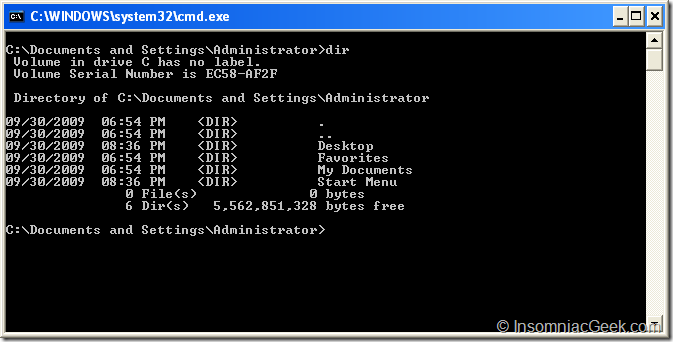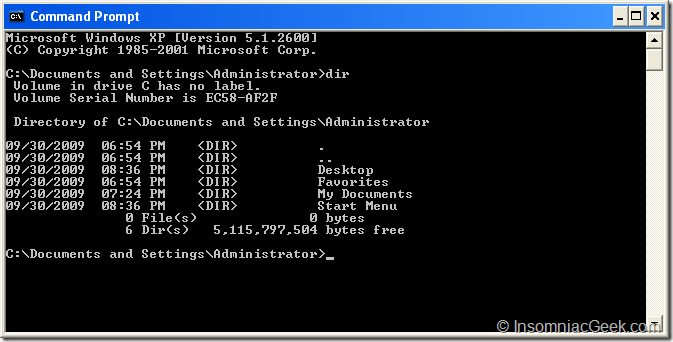Does the Microsoft .NET Framework slow down your PC?
Background
I read in a bunch of discussion forums that installing the Microsoft .NET framework will slow down your PC. These claims often comes from different people that are from the ground up Microsoft bashers. They don’t backup their claims with facts, they often just say that:
- Of course installing the .NET framework will slow down your PC. The hard drive will be filled with some more data, the registry will be filled up with all kinds of “crap”. So, of course, your PC will be slower.
Well, for me, this triggers some thoughts from my side. For me, the Microsoft .NET Framework is exactly what the name suggests; a framework. By definition a framework is something that will help development of a software product.
One thing that must be clear is that Microsoft Windows is not dependant on the .NET Framework.
To determine if this is true I decided to do some benchmarking.
System setup
| OS | Microsoft Windows XP Professional |
| Service Pack | 3 |
| Allocated memory | 1024MB |
| Number of virtual processors | 2 |
| Host CPU | Intel T9600 |
| Host Hard Drive | 7200 rpm 2.5" HD |
| Host RAM Memory | 6GB |
Passmark
I ran the complete PassMark version 7.0 build 1008 on a clean Windows XP installation.
I ran the test 5 times and averaged the score.
After that, I ran the setup of the Microsoft Frame v3.5 SP1, using the web install from this link
The total number of MB was 53MB.
I ran the complete PassMark test again, 5 times and averaged the score.
As you can see, the result with the .NET Framework did actually score more points. However, I suspect that this is because some variations in the results and not because of the framework itself.
Disk space
On a clean installation, the total number of free bytes were 5,562,851,328 bytes.
After the .NET Framework was installed, the number of free bytes were 5,115,797,504 bytes.
That makes the total hard disk space allocated by the framework 447,053,824 bytes (447MB)
Now, some people may think that this is a lot, but given the sizes of software today, that is not much.
Registry size
To determine the registry size, I used the dureg.exe utility from the Windows 2000 Resource Toolkit. It turns out that the .NET Framework installation adds about 10MB to your registry. Let’s put that into perspective. On a somewhat normal Windows installation, the registry would typically occupy some 140 MB, and with the .NET Framework, the total would be 150MB.
Processes and allocated memory
On a clean install, the task manager reports the following information:
23 processes running, 96MB of RAM committed.’
| Without .NET Framework[ ](https://cdn.insomniacgeek.com/images/media/image/WindowsLiveWriter/Does.NETFrameworkslowdownyourPC_12E5C/task%20manager%20without%20NET.png) | With .NET Framework 3.5 SP1[ ](https://cdn.insomniacgeek.com/images/media/image/WindowsLiveWriter/Does.NETFrameworkslowdownyourPC_12E5C/with%20NET3.png)[](https://cdn.insomniacgeek.com/images/media/image/WindowsLiveWriter/Does.NETFrameworkslowdownyourPC_12E5C/with%20NET3%20-%20Copy.png) |
And after the framework is installed, the situation is the same, 23 processes, about the same committed memory.
Boot times
The boot times were measured using a stop watch. 5 boots were measured and the average was calculated.
I put a shortcut in the startup folder to a text file. I measured the time from the BIOS logo to the time when Notepad showed the text file.
Conclusion
It’s a complicated task to determine if the framework affects your PC performance. It’ sure adds a mere 10MB to your registry and about 447MB to your hard disk, But the most important thing is that it doesn’t affect the actual performance. The passmark test show that the performance is not deteriorated. After this test I can safely conclude that the Microsoft .NET Framework doesn’t impact the performance of your PC. You can safely install the .NET framework without any worries.
Myth: The .NET Framework degrades performance. Busted.
Myth. The .NET Framework increases boot time: Busted.
Myth. The .NET Framework increases memory usage. Busted.
Myth: The .NET Framework increases the number of running processes: Busted.
Myth: The .NET Framework increases the Registry size: Confirmed. (By some mere 10MB)
Myth. The .NET Framework occupies hard disk space: Confirmed. (By about 447MB)




